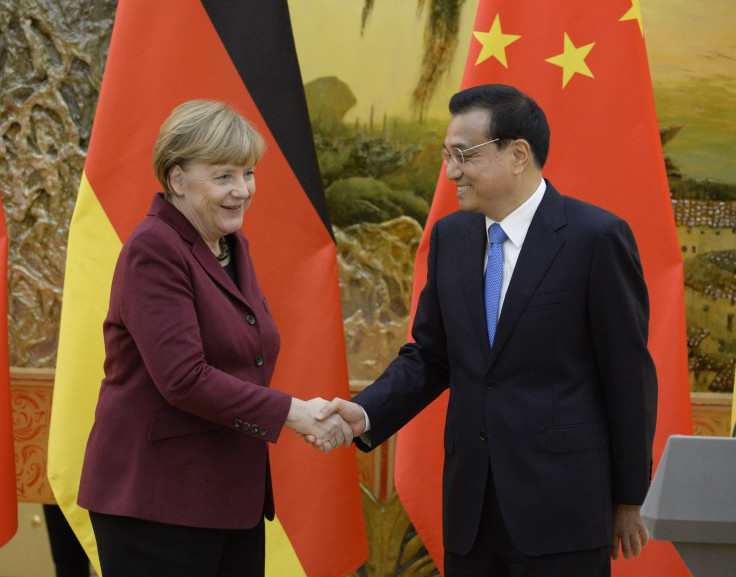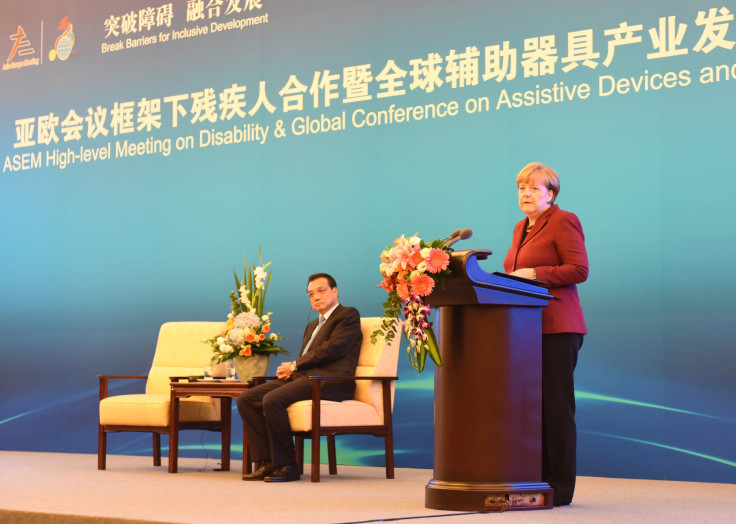Angela Merkel China Visit: German Leader's 2-Day Trip Aimed At Bolstering Trade Ties

German Chancellor Angela Merkel began her two-day trip to China Thursday -- her eighth visit to the Asian country -- with an aim to expand trade relations with the world’s second-largest economy. Bilateral trade between China and Germany stood at 154 billion euros ($168 billion) in 2014, making the latter China’s largest trading partner in the European Union.
The visit comes on the heels of a highly publicized visit to the U.K. by Chinese President Xi Jinping last week, when deals worth $62 billion were signed.
The key issues during the German chancellor’s visit are likely to be Chinese government’s handling of the economic slowdown and ensuring the continuation of close trade ties.
“It’s about confidence-building,” Anton Boerner, head of the BGA export-industry association, told Bloomberg. “The most important thing would be for Merkel to press them on how big the problems in China really are and to find out if the Chinese will get a grip on them.”

German foreign direct investment in China amounts to 48 billion euros ($53.04 billion) and 5,000 German businesses operate there. The effect of a drop in Chinese demand is already being felt in the European nation. For instance, the German engineering sector saw exports to China shrink by 4.9 percent in the first half of 2015, while the trade volume between the two countries fell 11.8 percent.
“The weaknesses of Germany's 'special relationship' with China are becoming increasingly apparent,” Hans Kundnani from the German Marshall Fund, told Reuters. “I think there is a growing perception among German business people that they are too exposed to China.”
German carmakers account for a third of the country’s exports to China. It is, therefore, no surprise that Merkel is being accompanied to China by the CEO of the scandal-hit automaker Volkswagen AG. The visit provides an opportunity for her to tell Chinese leaders that the diesel-emission scandal -- which is believed to have affected 11 million cars worldwide -- doesn’t reflect on German manufacturers as a whole and that German companies are committed to play by the rules.
“Eighty-nine percent of German companies operating in China from the automotive sector and 58 percent from the mechanical engineering sector have scaled down their expectations,” Eric Schweitzer, president of the German Chamber of Commerce, said Monday. “This is not a result of the exhaust gas scandal, but due to the politically planned remodeling of the Chinese economy.”
In addition to the Volkswagen CEO Matthias Mueller, nearly 20 other business leaders, representing the machinery, auto, electrical and telecommunications sectors, are accompanying the German chancellor.
© Copyright IBTimes 2024. All rights reserved.






















